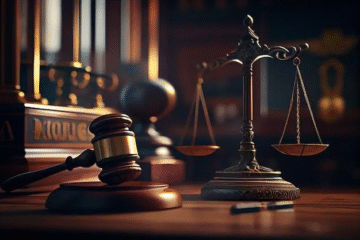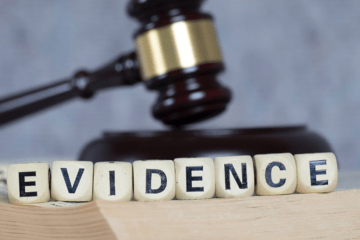
This article is written by Muskan Dangi of 8th semester of BALLB Hons. of FIMT, GGSIP University, Delhi, an intern under Legal Vidhiya
ABSTRACT
Confessions given to police or a judge while in custody, but later denied, are called retracted confessions. Courts continue to examine how reliable these confessions are. Indian law allows some confessions as evidence but requires several strict rules to guarantee that all such confessions are voluntary, truthful and free from coercion.
A meaningful confession, even if formally retracted, remains substantially meaningful evidence. Judicial systems may rely on confessions to convict people and those confessions must be voluntary and corroborated by other evidence. Retracted confessions complicate court proceedings. Judges must then determine if duress, inducement, or threat compromised the confession’s reliability.
This research rigorously examines retracted confessions, focusing on their admissibility as evidence, their natural evidentiary value and their legal status in Indian courts. This research employs many authoritative sources for a thorough analysis, including Indian Evidence Act, Criminal Procedure Code and Indian Penal Code provisions govern the admissibility of confessions as evidence. This research uses landmark rulings from the Supreme Court of India and multiple High Courts to create key principles concerning retracted confessions.
Keywords
Confession, Admission, Evidentiary Value, Retraction, Corroboration, Accused, Prosecution, Recanting, Judicial, Extra-Judicial
INTRODUCTION
To guarantee that the real accused, not an innocent or fabricated person, gets punished, India’s criminal law offers a number of safeguards at every stage. When someone is arrested, the punishment they receive is largely determined by their confession. In addition to assisting the prosecution get the perpetrator punished, this helps them gather new facts and evidence. According to the law, confessions given before the magistrate are regarded as important pieces of evidence.
Mr. Justice Stephen in his Digest of the law of Evidence defines confession as “confession is an admission made at any time by a person charged with a crime stating or suggesting the inference that he committed that crime.”[1]
There is no definition for the word “confession,” which first appears in Section 24 of the Indian Evidence Act. “Admission” refers to all of the clauses that deal with “confession.” As stated in Section 17 of the Act, confessions are clearly merely a kind of admission. Not all admissions are necessarily confessions, even though it is true that all confessions are required admissions. Sections 17 to 23 deal with admissions, while Sections 24 to 30 deal with confessions.
According to Police and Evidence Act 1984, confession is defined as,” as any statement who is wholly or partly adverse to the person who made it.”[2]
If a court finds that an accused person’s confession was gained under duress, by promise, or by threat, stating the charge against the accused person and coming from a person in a position of authority, then the confession is not significant in a criminal case.
Retraction can be defined as the act of recanting. Recanting means officially denying or taking back prior statements. When an accused person confesses to a crime before the trial but later denies it during the trial, this is known as a retracted confession. A confession can only be retracted when the accused admits making it but then questions its accuracy. Usually it is not advisable to base a conviction of the accused giving a retracted confession alone without some other corroboration, even though it may serve as the basis for a conviction if it is believed to be accurate.
Retractions of statements occur in most criminal trials. It happens in almost all high-profile cases, the reason for this might be the security of the accused or witnesses who are under the influence of the opposing party. It can also include inadequate police protection, or badly constructed witness protection structure.
MEANING AND TYPES OF CONFESSION
According to the Indian legal system, a confession is an essential piece of evidence that can be used to prove guilt in a criminal prosecution. However, confessions by themselves are rarely admissible in court unless they are recorded in accordance with the guidelines set forth by the Evidence Act. Admittances made under duress, coercion, or undue influence are not regarded as voluntary and are not admissible as evidence. The accused must voluntarily make the confession and it cannot be the result of coercion, threats, or promises of any kind.
Types of Confession
The major types of confessions are-
- Judicial Confession
Judicial Confessions are confessions made to a judge or a magistrate in the court during the proceedings of a case. Section 164 of the Criminal Procedure Code states that confessions can be recorded in any municipal or judicial court, independent of the jurisdiction of the case. A petition of guilty on agreement is the term used to describe this kind of confession. Only judges are permitted to record statements, while the executive branch is prohibited from doing so by the judicial confession act. They also have the admissibility of confessions as evidence is governed by Section 80 of the Indian Evidence Act. Article 20(3) of the Indian Constitution, which deals with “self-incrimination,” states that the suspects must be protected and that the confession must be given willingly.
- Extra-Judicial Confession
Confessions made outside of court or in front of a judge are known as extrajudicial confessions. These disclosures are typically considered unofficial admissions. None of the confessions admissible must be the product of threat, coercion or undue influence. If someone overhears the speaker making this confession to themselves, it could be used against them.
Confessions can also be made via letters. This type of extralegal confession might be utilized to prove guilt in court. The Supreme Court has set standards for judging whether extrajudicial confessions are legitimate. Confessions made outside of court are not as reliable as those made in court. Such admissions require careful observation. Only if the defendant can show that the confession is convincing and consistent will its value increase. For extrajudicial confessions too, adequate supporting evidence is necessary.
- Retracted Confession
Any voluntary confession that is retracted or withdrawn is called a “retracted confession.” The court will decide if such a confession is credible. It changes based on the particulars and circumstances of each case. If the confession is supported, it could amount to conviction. The recanted confession can only be used as the basis for conviction if the court finds that the confession was made voluntarily and with full knowledge of the consequences. Nonetheless, the retracted confession needs to be backed up by evidence.
RIGHT OF ACCUSED TO RETRACT CONFESSIONS
According to Article 20 clause 3 of the constitution, no one may be forced against their will to make a confession.[3] This makes the right to retract all the more important. The court will have to look into the nature and credibility of the confession if the accused retracts. Section 24 of the Indian Evidence Act, 1872 (IEA) states that a confession will be considered useless if it is not made willingly and freely. The accused should never be coerced, threatened, or promised anything by the interrogator. This is further supported by Section 164 of the CrPC, which requires a magistrate to inform the confessor that he is not obligated to confess and that doing so could be used against him.
The Indian Penal Code has created a safeguard against torture and threats of torture by using the common law concept of voluntariness. It is claimed that this law is an administrative measure designed tackle the many forms of torture and other methods of coercing confessions that were very prevalent in the past.
If it turns apparent that a confession was not offered voluntarily, the court will have to reject it right away. Sections 24 to 30 of the Evidence Act are meticulously crafted to guarantee that the right protected by Article 20(3) of the Constitution is sufficiently provided.
EVIDENTIARY VALUE OF RETRACTED CONFESSION
The Indian Evidence Act, 1872 makes no distinction between a retracted confession and an unretracted confession and both are equally admissible and may be taken into consideration against the accused, though the retracted one might carry less weight as compared to unretracted one.
The Indian Evidence Act does not specifically states that a retracted confession cannot be utilized against the confessing accused or the co-accused(s) but it’s a really flimsy piece of proof. The law regarding the relevance and materialism of a retracted confession has been well established in this Court, where Kernen, J., described the conditions under which a retracted confession might be allowed in evidence, according to a ruling by Seshagiri Aiyar and Moore, JJ. Since then, it has been evident that this Court has consistently held that a confession should not serve as the foundation for a conviction unless it is backed up by independent testimony and relevant details.
An honest and voluntary confession is strong evidence of guilt, as is well recognized in a case (Shrishail Nageshi Pare v State of Maharashtra)[4] where the appellant withdrew a confession after being questioned during the trial under section 311 of the Criminal Procedure Code, the court found that a confession is effective proof of guilt provided it is given voluntarily and honestly.
Therefore, when the prosecution seeks the accused’s conviction in a capital case, principally based on his confession recorded under Section 164 CrPC, the court must apply a double test developed by SC in the case of Shankaria v State of Rajasthan[5]–
(i) Was the confession made willingly?
(ii) If yes, is it accurate and reliable? To be entered into evidence, something must pass the first test. If the court finds that the confession was forced, threatened, or promised in violation of Section 24 of the Evidence Act, it must be excluded and rejected. In such a case, the question of whether the second test should be applied further does not arise. If the first need is met, the court must first determine if the confession’s claims are true and reliable before proceeding. It is impossible to evaluate the veracity of such confessions—or, for that matter, any important piece of evidence—using generally recognized standards.
The Significance of Corroboration
A law that has been enacted out of caution and wisdom states that retracted confessions cannot be used as the only basis for conviction unless they are backed up by proof. It is not necessary to independently and individually verify each and every incident that is mentioned in the confession. That would be sufficient as long as the general pattern of the confession is backed up by evidence consistent with its contents.
Furthermore, until a retracted confession is substantiated in great detail by independent evidence, it is frequently unsafe to base an accused person’s conviction on it, even if it is judged to be truthful and voluntary.
CASE LAWS
- Bharat vs. State of U. P.[6] – Hidayatullah, C. J., on behalf of a three-judge bench stated that it is safe to rely on a confession when the voluntary character and truth of the statement are accepted. The voluntary nature of the confession depends on the possibility or existence of any threat, inducement or undue influence. This can be determined by examining the prosecution case and investigation.
- Pyare Lal Bhargava v. State of Rajasthan[7]– “A retracted confession may form the legal basis of conviction if the court is satisfied that it was true and voluntarily made.” Although it has been held multiple times that the Court shall not depend on such confession without corroboration.
- Subramania Gounden vs. The State of Madras[8] – A retracted confession may be taken into account by a court but it must look for the reasons for making the confession and the reasons for its retraction. These reasons must be analyased in order to determine as to whether the retraction affects the voluntary nature of the confession. It can be said that a true confession, which is made knowingly and voluntarily, can be acted upon, even with slight evidence supporting it.
- State (N.C.T. of Delhi) vs. Navjot Sandhu and Ors.[9] – The court further summarized the evidentiary value of retracted confession and referred to Bharat vs. State of U.P. It was held that when the truth and coluntariness of the confession are accepted, it can be relied upon. If a conviction is voluntary and true and not made under any inducement, threat or promise, it is the most rigid piece of evidence against the maker. Retracted confession, however, can be a weaker piece of evidence.
- Haroom Hazi Abdulla vs. State of Maharashtra[10]The court observed that a “retracted confession must be looked upon with greater concern unless the reasons given for having made it in the first instance are prima facie false.” There was a further observation that retracted confession is a weak link against the accused/maker and a stronger one against a co-accused. Justice Hidayatullah’s statement that the retracted confession is a “weak link against the maker” goes counter to a series of decisions. The observation must be viewed in the context of the fact that the Court was concentrating on the confession of the co-accused rather than the penitentiary value of the retracted confession against the maker.
RECENT DEVELOPMENTS
Recently Indian Evidence Act, 1872 has been replaced by Bhartiya Sakshya Adhiniyam[11] in 2023. Sections 22 to 24 of the The Bharatiya Sakshya Adhiniyam, 2023 (BSA) provide a framework for dealing with confessions in criminal cases. These rules promote protecting the accused’s rights, maintaining the fairness of the legal system, and proving that justice is based on honesty and truth.
Section 22: Confessions Made Under Pressure
This section makes sure that confessions are not made by someone who was scared, threatened, or promised something in return. If it turns out that the maker of the confession was under some kind of undue influence, the court will not accept it as evidence. Nevertheless, if the confession is later made voluntarily, the court may accept it. Furthermore, a confession does not lose its significance just because the confessor says they were drunk, drugged, tricked, or ignorant of their rights. (Earlier under Section 24,28 and 29 of IEA,1872)
Section 23 of the act deals with confessions made to police officers and Section 24 deals with Confessions Involving Multiple People.
CONCLUSION
Confessions are the most significant piece of evidence against an individual. However, its validity is questioned after it is withdrawn, regardless of how long it takes the individual—days or months.
In the case of K.I. Pavunny v. Assisstant Collector[12] that there is no bar under the Indian Evidence Act to rely upon the retracted statement and to make it the basis for convictionof the accused when the court is satisfied that the statement was voluntary and true.
The courts have created a standard for determining whether retracted confessions are lawful. When elements like fear, threat, and punishment are present in a criminal case, it is very difficult to prove that a statement was given freely and voluntarily. Therefore, the researcher believes that retracted confessions should be considered very weak evidence. The Haricharan Kurmi case[13], which held that the court must first evaluate the prosecution’s evidence before determining whether to use the confession to support its decision after forming an opinion regarding the caliber and significance of the evidence, further supports this argument.
Trend that emerges out of exploration of above rulings is that rule of practice and prudence requires corroboration of retracted confession. This rule of practice is so consistently followed that it became the Rule of Law. 14th report of Law Commission recommended that this rule should be given statutory recognition.[14]
However, after thorough deliberation, the Law Commission’s 69th Report came to the conclusion that it would be best to leave the situation alone. This would allow the court to assess all available evidence and give confessions the weight it deems
REFERENCES
- http://student.manupatra.com/Academic/Abk/Law-of-Evidence/Chapter3.htm
- https://lawbeat.in/articles/comparative-analysis-confessional-procedure-under-indian-and-us-federal-laws
- https://indiankanoon.org/search/?formInput=retracted+confession
- https://www.brillopedia.net/_files/ugd/134683_56c3cca76f0a4f9a82651a8b100c9d13.pdf?index=true
[1] James Fitzjames Stephen, A Digest Of The Law Of Evidence 1876
[2] Police and Criminal Evidence Act, 1984, § 76, No. 1, Acts of Parliament, 1962
[3] INDIAN CONSTITUTION Art.20 (3)
[4] Shrishail Nageshi Pare v. State of Maharashtra (1985) 3 SCR 461
[5] Shankaria v. State of Rajasthan (1978) AIR 1978 SC 1248
[6] Bharat v. State of U.P. (1970) Criminal Appeal No. 158 of 1969, Supreme Court of India
[7] Pyare Lal Bhargava v. State of Rajasthan (1962) AIR 1963 SC 1094
[8] Subramania Gounden v. The State of Madras (1958) AIR 1958 SC 66
[9] State (N.C.T. of Delhi) v. Navjot Sandhu @ Afsan Guru (2005) 11 SCC 600
[10] Haroom Hazi Abdulla v. State of Maharashtra (1968) AIR 1968 SC 832
[11] THE BHARATIYA SAKSHYA ADHINIYAM, 2023, NO. 47, Acts of Parliament, 2023
[12]K.I. Pavunny v. Assistant Collector (Headquarters), Central Excise (1997) AIR 1997 SC 2957
[13] Hari Charan Kurmi and Jogia Hajam v. State of Bihar (1964) AIR 1964 SC 1184
[14] Law Commission of India. 14th Report, Vol. 2, page 751, para 41
Disclaimer: The materials provided herein are intended solely for informational purposes. Accessing or using the site or the materials does not establish an attorney-client relationship. The information presented on this site is not to be construed as legal or professional advice, and it should not be relied upon for such purposes or used as a substitute for advice from a licensed attorney in your state. Additionally, the viewpoint presented by the author is personal.




0 Comments